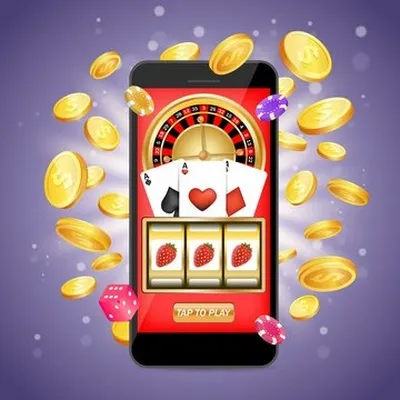Online casinos offer the thrill of classic table games from the comfort of your home. While luck undeniably plays a role, for games like Blackjack and Roulette, employing smart strategies can significantly enhance your experience and potentially improve your long-term outcomes. This guide explores proven approaches for both ufabet games in the online environment of 2025.
Blackjack: Master the Art of Basic Strategy
Blackjack is unique among casino games because player decisions directly impact the house edge. With perfect play, you can reduce the casino’s advantage to less than 0.5%, making it one of the most favorable games for players.
The Cornerstone: Basic Strategy
Basic Strategy is a mathematically derived set of rules that tells you the optimal decision for every possible hand you can be dealt against every possible dealer up-card. It minimizes the house edge over the long run.
- When to Hit, Stand, Double Down, or Split:
- Hard Totals (no Ace counted as 11):
- Always Hit: Your hand is 8 or less.
- Stand on 17+: Always stand on 17 or higher.
- Stand on 12-16: If the dealer’s up-card is a 2-6 (weak dealer hand), stand. If the dealer has a 7 or higher, hit.
- Double Down:
- On 11, double down against any dealer up-card (except an Ace).
- On 10, double down against dealer 2-9.
- On 9, double down against dealer 3-6.
- Soft Totals (with an Ace counted as 11):
- Soft 19 (A,8) or Soft 20 (A,9): Always stand.
- Soft 18 (A,7): Stand against dealer 2, 7, 8. Double down against 2-6. Hit against 9, 10, Ace.
- Soft 17 (A,6): Double down against 3-6, otherwise hit.
- Soft 13-16 (A,2 to A,5): Generally hit, but double down against specific weak dealer cards (e.g., A,4 doubles against dealer 4-6).
- Splitting Pairs:
- Always Split: Aces and 8s.
- Never Split: 4s, 5s, 10s (or face cards).
- Split 2s, 3s, 7s: Against dealer 2-7.
- Split 6s: Against dealer 2-6.
- Split 9s: Against dealer 2-9 (except 7).
- Hard Totals (no Ace counted as 11):
Key Considerations for Online Blackjack:
- Practice with a Strategy Chart: Numerous free basic strategy charts are available online. Keep one open while you play online, especially when you’re starting. Practice play money games to internalize the strategy.
- Avoid “Insurance” Bets: While tempting when the dealer shows an Ace, the “insurance” side bet typically has a high house edge and is not recommended by basic strategy.
- Table Rules Matter: Online casinos can have slightly different rules (e.g., dealer hits or stands on soft 17, surrender option, number of decks). These variations can subtly impact the optimal strategy and house edge. Always check the game’s rules.
- Card Counting: While effective in land-based casinos, card counting is largely ineffective and often impossible in online RNG (Random Number Generator) blackjack. Most online games shuffle the deck after every hand, making traditional counting irrelevant. Live dealer blackjack may use multiple decks and frequent shuffles, also diminishing the effectiveness of counting. Casinos can also close accounts of suspected card counters, though it’s not illegal. Focus on basic strategy for online play.
- Bankroll Management: Even with perfect basic strategy, blackjack involves variance. Set a budget and stick to it. Never bet more than 1-2% of your total bankroll per hand.
Roulette: Understanding Odds and Managing Risk
Roulette is a game of pure chance, meaning no strategy can alter the house edge or guarantee a win in the long run. The house edge in European Roulette (2.7%) is lower than American Roulette (5.26%) due to the single ‘0’ vs. ‘0’ and ’00’. Always opt for European or French Roulette if available.
While strategies can’t change the odds, they can help structure your betting and manage your bankroll.
1. The Martingale System (Negative Progression)
- How it works: This is the most famous (and infamous) roulette strategy. You bet on an even-money outcome (Red/Black, Odd/Even, 1-18/19-36). After every loss, you double your bet. After a win, you return to your original bet size. The idea is that one win will recover all previous losses plus a small profit.
- Pros: Simple to understand and implement. In theory, it guarantees a profit if you have an infinite bankroll and no table limits.
- Cons:
- High Risk: A losing streak, which is inevitable, can rapidly escalate your bets to unsustainable levels.
- Table Limits: You will eventually hit the table’s maximum bet limit, making it impossible to continue doubling and recover losses.
- Bankroll Depletion: Even without hitting table limits, a long losing streak can quickly wipe out your entire bankroll.
- Verdict: While popular, the Martingale is not recommended for long-term play due to its inherent risks. It’s best used for short, fun sessions with a clear stop-loss.
2. The Reverse Martingale (Paroli System – Positive Progression)
- How it works: This strategy aims to capitalize on winning streaks. You double your bet after every win, and return to your original bet after a loss. Many players set a limit (e.g., three consecutive wins) before resetting to the original bet to “bank” profits.
- Pros:
- Lower Risk: You only increase your bet when you’re winning, so losing streaks are less costly.
- Exploits Hot Streaks: Allows you to maximize profits during fortunate runs.
- Doesn’t Require a Large Bankroll: As you don’t chase losses, bankroll requirements are lower.
- Cons: A single loss can wipe out all accumulated winnings from a streak. Discipline is key to cashing out at the right time.
- Verdict: A less aggressive and generally safer system than Martingale, better for short-term profit chasing.
3. The D’Alembert System (Negative Progression – Gentler)
- How it works: Similar to Martingale but less aggressive. You bet on an even-money outcome. After a loss, you increase your bet by one unit. After a win, you decrease your bet by one unit.
- Pros: Slower progression of bets, making it less likely to hit table limits quickly and easier on your bankroll during short losing streaks.
- Cons: Still a negative progression system, meaning long losing streaks will still lead to significant losses. Wins only recover losses slowly.
- Verdict: A more conservative approach than Martingale, but still doesn’t change the house edge. Good for extending playtime.
4. The Fibonacci System (Negative Progression – Based on Sequence)
- How it works: Bets are based on the Fibonacci sequence (1, 1, 2, 3, 5, 8, 13, etc., where each number is the sum of the two preceding ones). After a loss, you move one step forward in the sequence for your next bet. After a win, you move two steps back.
- Pros: Also less aggressive than Martingale, offering a more structured loss recovery.
- Cons: Can still lead to large bets during extended losing streaks.
- Verdict: A disciplined system for those who prefer a structured approach to managing losses.
General Roulette Strategy Tips:
- Prioritize European Roulette: The single zero significantly reduces the house edge compared to American Roulette.
- Understand Odds and Payouts: Know the difference between inside bets (single numbers, higher payout, lower odds) and outside bets (red/black, odd/even, lower payout, higher odds). Betting systems typically apply to even-money outside bets.
- Bankroll Management: This is paramount for roulette. Decide on a budget for your session and stick to it. Never chase losses.
- No “Guaranteed Win” System: Remember that roulette outcomes are random. No strategy can overcome the built-in house edge in the long run. Strategies are for managing your play, not for guaranteeing profit.
Conclusion
For online casino players in 2025, strategic play can add an exciting dimension to your gaming experience. For Blackjack, mastering basic strategy is non-negotiable – it’s the best way to give yourself a fighting chance against the house. For Roulette, while no system beats the odds, strategies like the Paroli or D’Alembert can help structure your betting and manage your bankroll effectively, ensuring you get the most enjoyment out of this classic game. Always combine your chosen strategy with sound bankroll management and responsible gambling practices.






